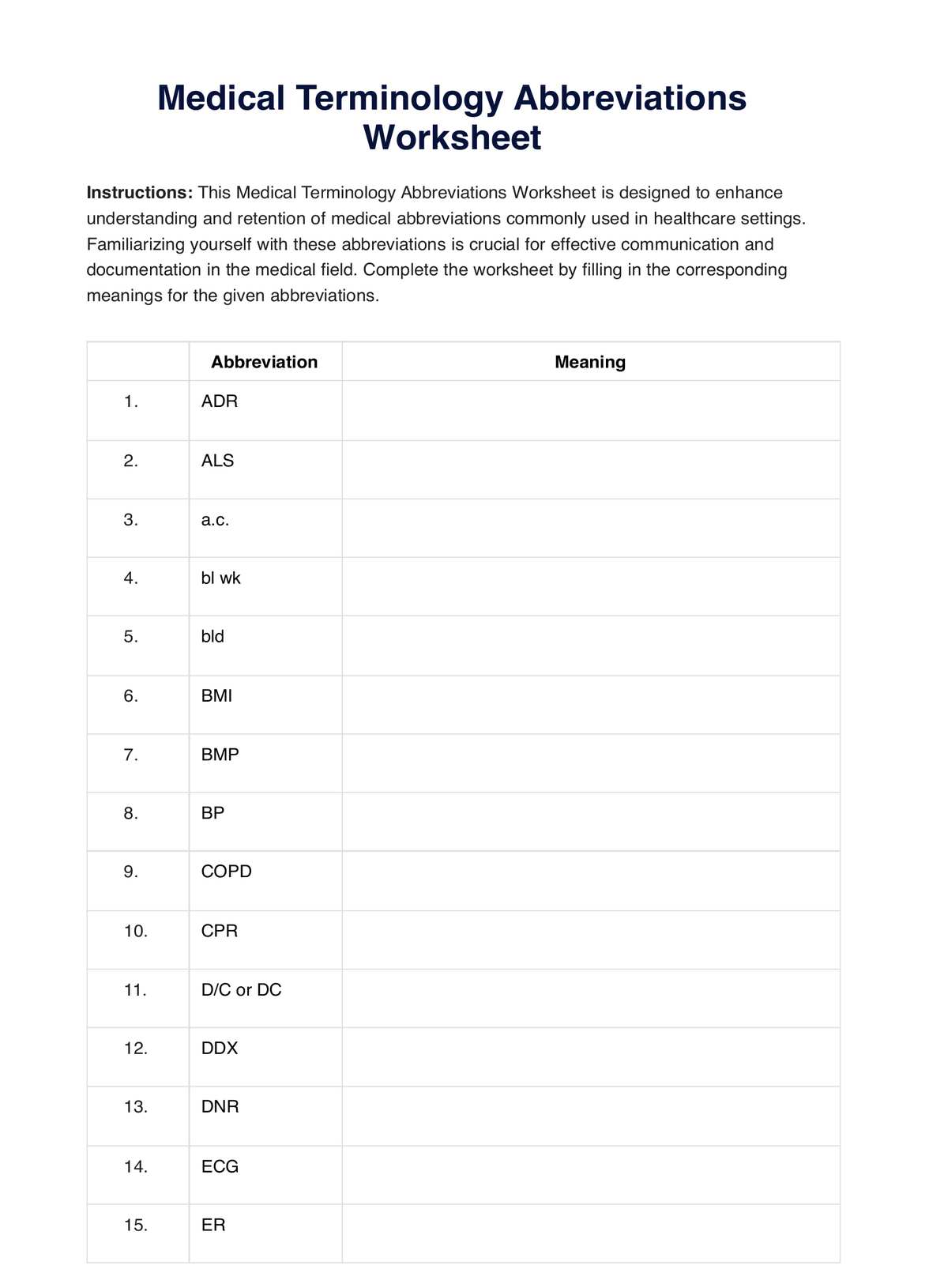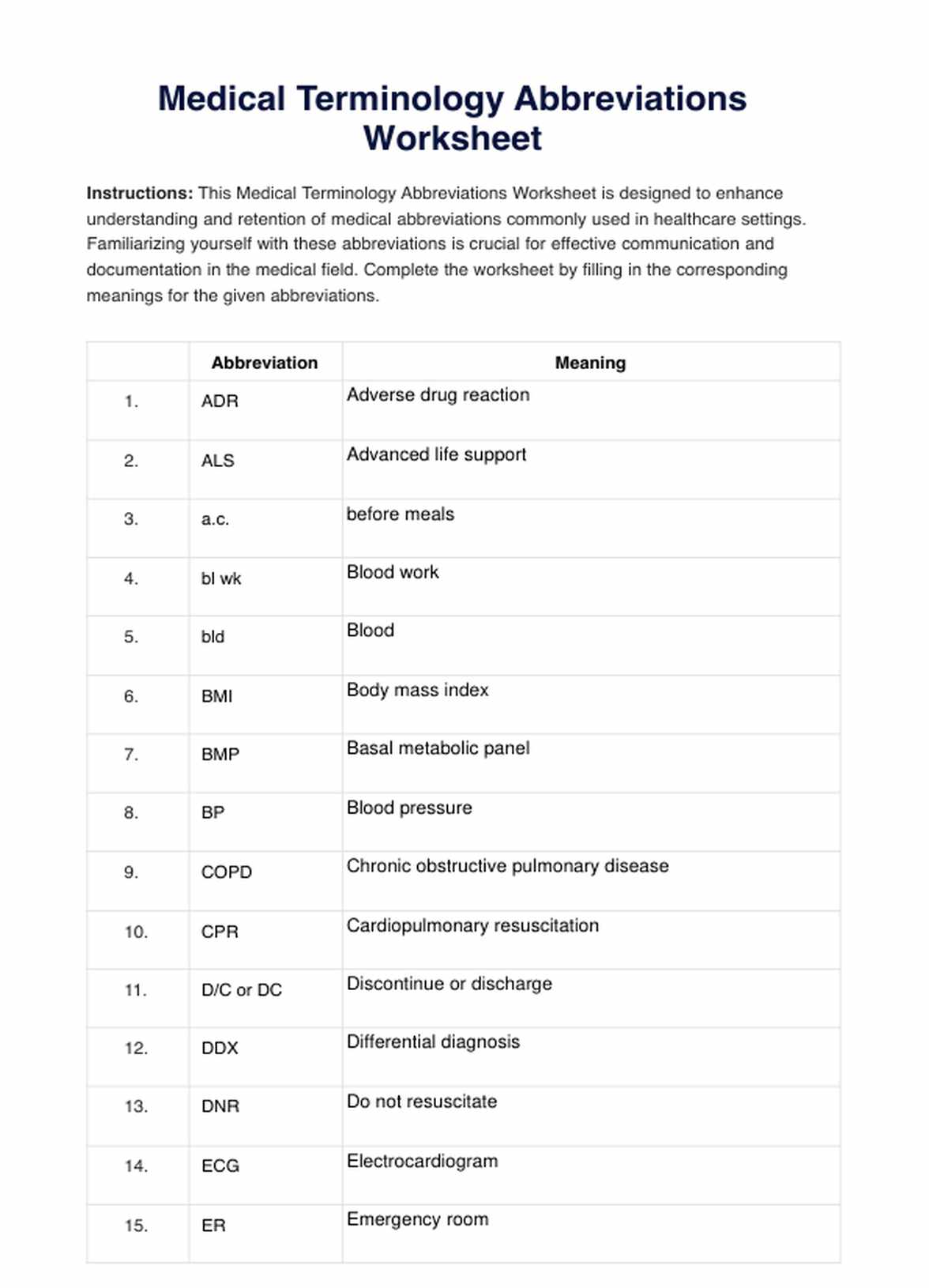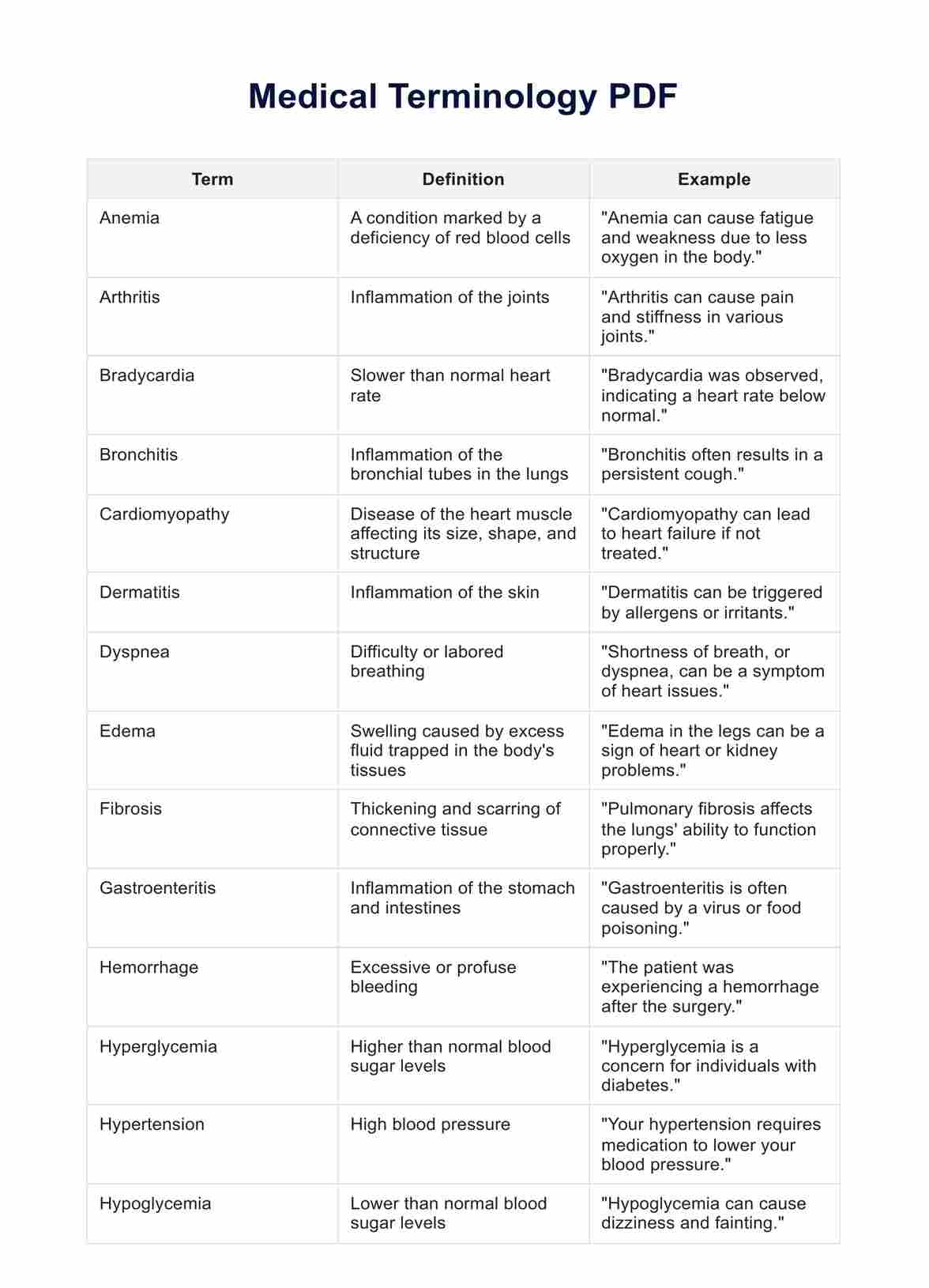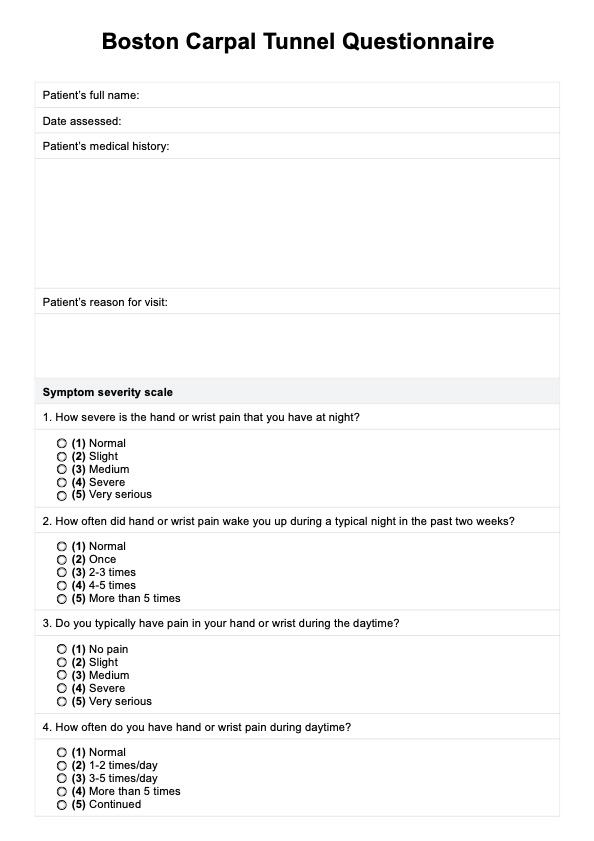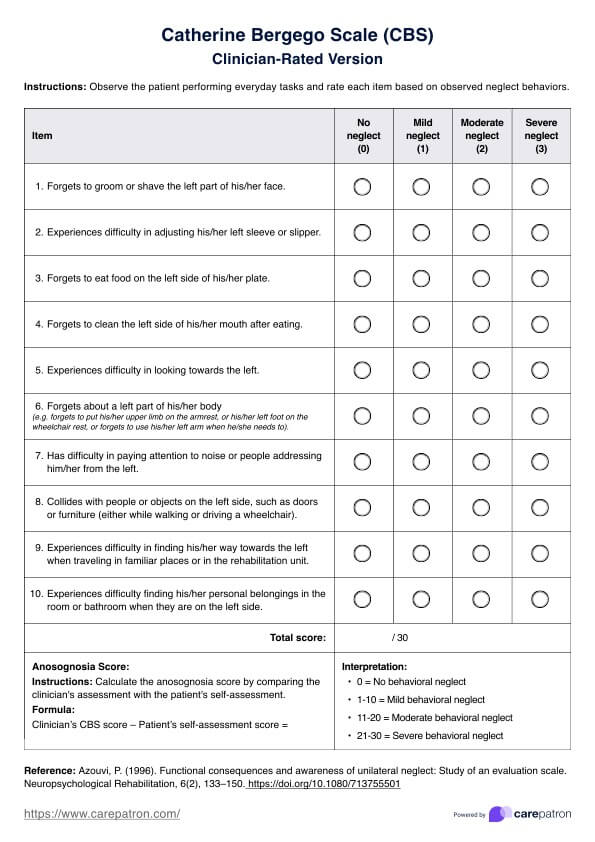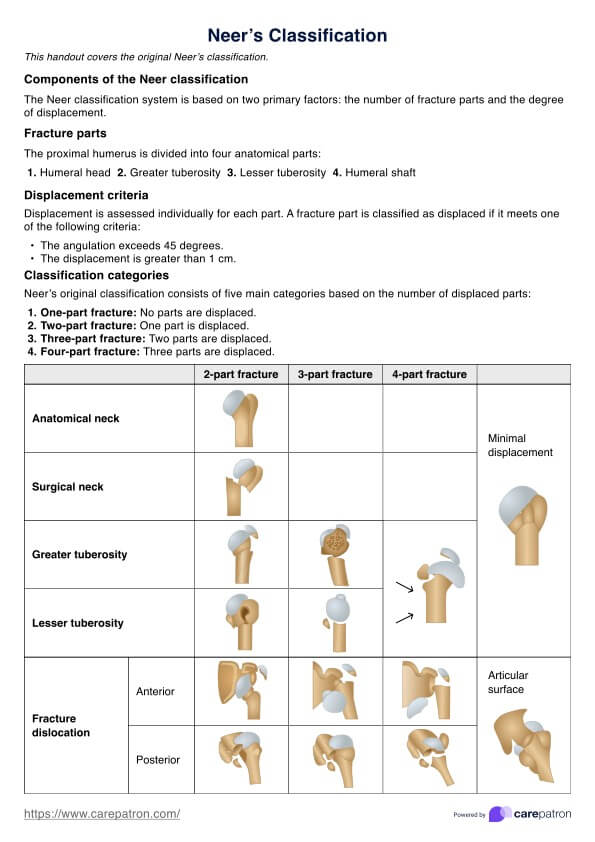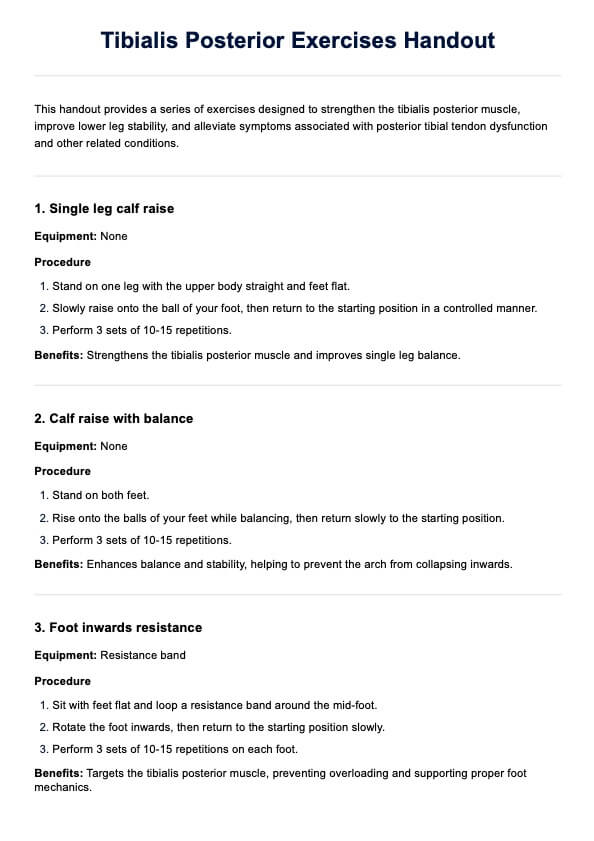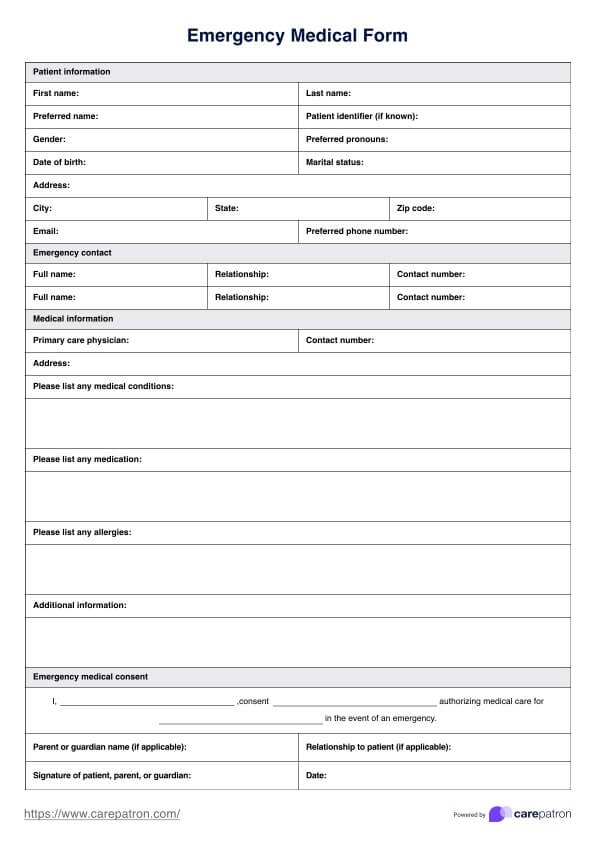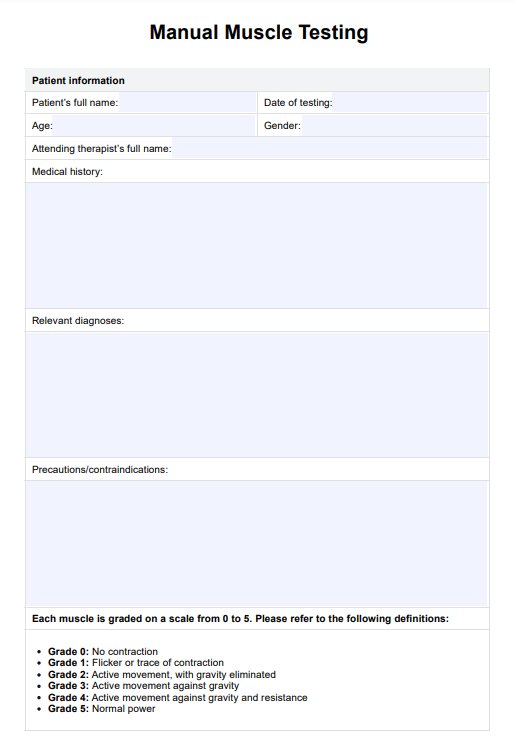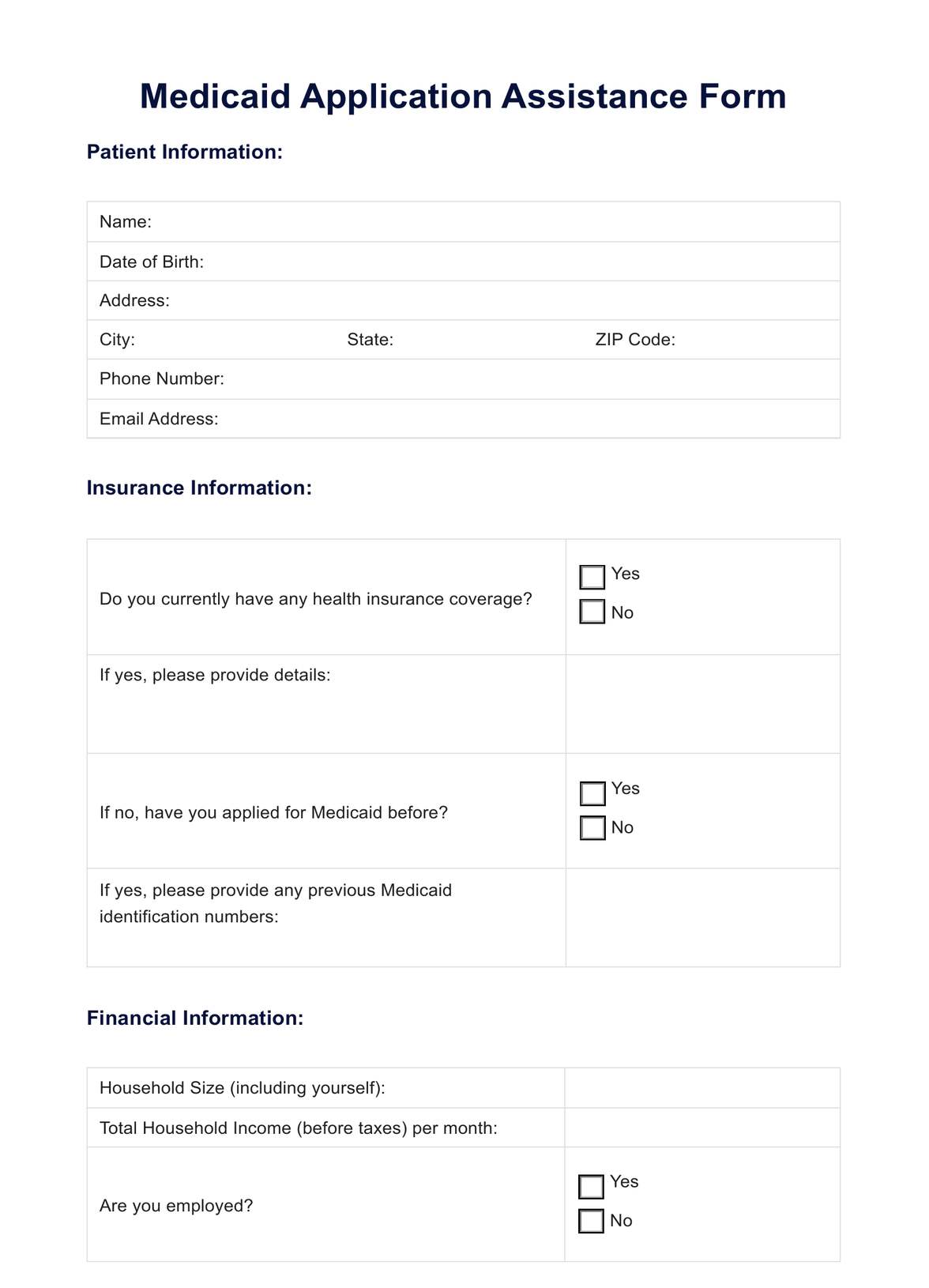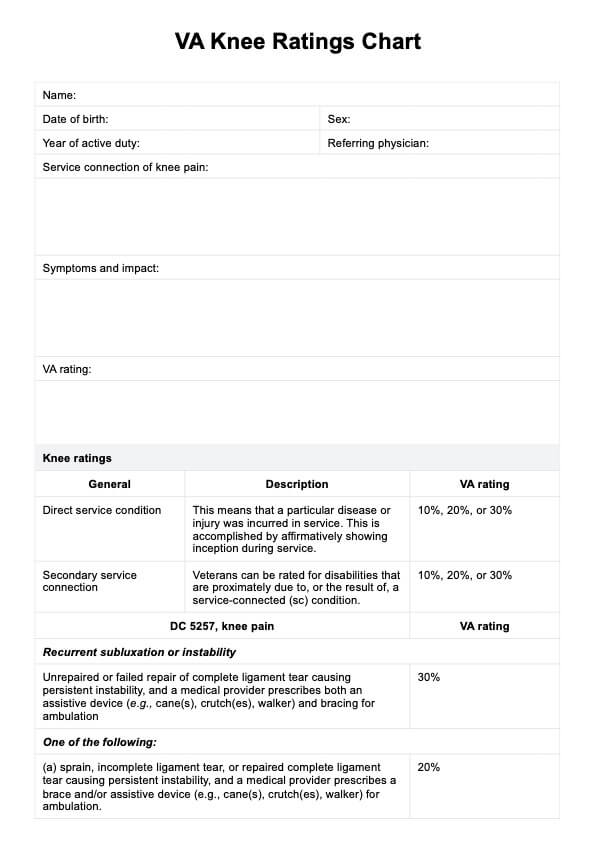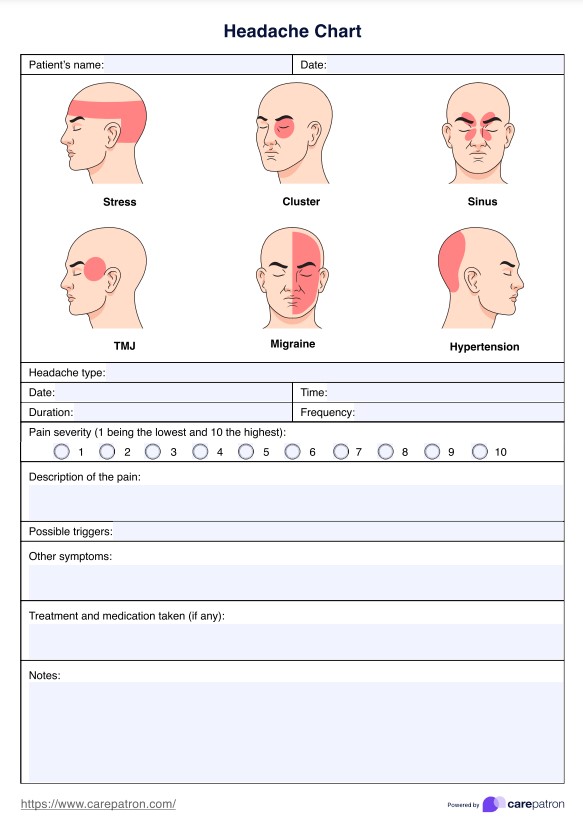Medical Terminology Abbreviations Worksheet
Enhance your medical knowledge with our Medical Terminology Abbreviations Worksheet. Learn human terms, address problems, and start changing your day!


An introduction to medical terminology abbreviations
Understanding medical terminology can initially feel like deciphering an enigmatic code. For many, it's akin to navigating uncharted waters, each unfamiliar term and abbreviation acting as an unexplored territory. If you've ever found yourself grappling with the complexities of medical conversations, you're not alone. This journey is a shared experience, especially for those entering the realms of healthcare, nursing, or any field associated with the human body.
In the medical domain, effective communication is a must. Imagine a scenario where a healthcare professional relays crucial information using intricate language filled with medical abbreviations and terms. It's like receiving a cryptic message, leaving you intrigued and slightly puzzled. That's precisely where grasping medical terminology becomes indispensable.
This introduction serves as your gateway into the world of medical terminology abbreviations. It's not just about memorizing a list of terms; it's about unraveling the language that forms the backbone of healthcare communication. From deciphering the meanings of medical abbreviations to understanding the intricacies of terms associated with the muscular, respiratory, endocrine, urinary, skeletal, lymphatic, and more, this journey is about learning the language that defines human anatomy.
Whether you're one of the nursing students completing coursework or someone keen on comprehending the medical dialogue surrounding your health, the significance remains unchanged. In your field, you will encounter medical terms and prefixes from cells, organs, diseases, and procedures, and gradually, you'll find yourself equipped to decode the messages embedded in medical jargon. Consider this learning opportunity not as an intimidating challenge but as a step toward understanding the language that defines our human body.
Medical Terminology Abbreviations Worksheet Template
Medical Terminology Abbreviations Worksheet Example
Why is knowing healthcare terminology important?
The significance of healthcare terminology extends from human connections in patient interactions to facilitating continuous learning, problem-solving, and efficient information retrieval. Here are some of the reasons why knowing healthcare terminology is essential:
Enhanced communication for human connection
Clear and precise communication is crucial for ensuring optimal patient care in healthcare. Healthcare terminology is a universal language, enabling professionals to convey complex information accurately and comprehensively.
Facilitating access to information
Professionals equipped with a robust knowledge of healthcare terminology have improved access to medical literature, research, and databases. This proficiency expedites the retrieval of critical information, aiding in swift decision-making and problem-solving.
Empowering students completing coursework
For students completing healthcare-related coursework, a grasp of healthcare terminology is foundational. It is a scaffolding for more advanced concepts, facilitating a smoother learning journey.
Assessment and evaluation through worksheets and quizzes
Giving them a quiz or worksheet on healthcare terminology introduces key concepts and provides a means of evaluating a student's comprehension. They become tools for reinforcing learning and identifying areas that need additional attention.
Navigating change and problem-solving
Professionals with a strong command of healthcare terminology are better positioned to navigate change. This linguistic proficiency becomes a cornerstone for practical problem-solving, adapting to new protocols, and providing quality care.
How can you improve your terminology knowledge?
To learn and comprehend effectively, consider the following strategies:
- Active engagement: Rather than passively absorbing information, actively engage with the material. Complete worksheets, participate in quizzes, and actively involve yourself in the learning process.
- Incremental learning: Add new terms gradually. Introduce a few terms at a time and reinforce your understanding before moving to the next set. This step-by-step approach aids in retention and understanding.
- Regular quizzing: Regularly challenge yourself with quizzes. This not only gauges your progress but also reinforces the learning process. A well-constructed quiz is a valuable tool to strengthen your understanding.
- Access resources: Access diverse resources. Utilize textbooks, online platforms, and educational materials. Different resources can provide varied perspectives, enhancing your overall comprehension.
- Reflect on chapters: Take a moment to reflect at the end of each study session or chapter. Identify challenging terms or concepts and seek additional resources to solidify your understanding.
Common medical abbreviations
Some common medical abbreviations and their meanings were sourced from references, including St. George's University School of Medicine and MedicineNet.
- ADR: Adverse drug reaction
- ALS: Advanced life support
- a.c.: before meals
- bl wk: Blood work
- bold: Blood
- BMI: Body mass index
- BMP: Basal metabolic panel
- BP: Blood pressure
- COPD: Chronic obstructive pulmonary disease
- CPR: Cardiopulmonary resuscitation
- D/C or DC: Discontinue or discharge
- DDX: Differential diagnosis
- DNR: Do not resuscitate
- ECG: Electrocardiogram
- ER: Emergency room
- FX: Fracture
- h/o: History of
- HR: Heart rate
- ICU: Intensive care unit
- Lytes: Electrolytes
- N/V: Nausea or vomiting
- O.D.: Right eye
- O.S.: Left eye
- O.U.: Both eyes
- OR: Operating room
- p.o: per mouth
- PT: Physical therapy
- q.d: Each day. As in taking medicine daily
- q.i.d.: Four times daily. As in taking a medicine four times daily.
- q.o.d.: Every other day. As in taking medicine every other day.
- R/O: Rule out
- Rx: Prescription
- UA or u/a: Urinalysis
- UTI: Urinary tract infection
- VSS: Vital signs stable
Benefits of using this worksheet
- Structured learning: This worksheet provides a structured approach, guiding users to explore medical terminology abbreviations comprehensively.
- Active engagement: Users actively engage with the content, completing exercises and quizzes and fostering a deeper understanding of medical terms.
- Self-assessment: The worksheet includes self-assessment opportunities, allowing users to gauge their progress and identify areas for improvement.
- Convenient reference: As a convenient guide, this worksheet is a handy reference tool for reinforcing and applying medical terminology knowledge in real-world contexts.
Research and evidence
Research conducted by Awan et al. (2016) addresses the global patient safety concern of inappropriate abbreviations in healthcare, specifically focusing on internal medicine residents in a tertiary-care hospital. A self-administered questionnaire reveals a significant knowledge gap, with 68.8% demonstrating good knowledge, 20.8% satisfactory, and 10.4% unsatisfactory scores. The study identifies commonly misused abbreviations, emphasizing the necessity for comprehensive education to improve understanding and adherence to the 'do not use' list.
In another investigation, healthcare workers frequently use abbreviations in discharge summaries, with 31.9% deemed ambiguous, posing a risk to patient care due to potential miscommunication. The analysis of 1,551,537 words from 2,336 documents identifies 137,997 distinct abbreviations, with most having a single expansion. These findings underscore the imperative for electronic auto-expansion software to mitigate ambiguity, ensure transparent communication, and enhance patient safety in general medical contexts (Holper et al., 2020).
Similarly, the study on prevalent medical abbreviation use in ophthalmology consults at a tertiary hospital highlights potential patient harm resulting from inappropriate use. A cross-sectional survey involving 235 non-ophthalmologist physicians reveals a limited comprehension of these abbreviations, with only 42.5% knowing at least 10%. The results suggest the need to discourage abbreviation use in medical records, emphasizing the effectiveness of online teaching in improving physician education on this critical matter (Hamiel et al., 2018).
These collective findings underscore the broader significance of addressing inappropriate abbreviation use in healthcare for patient safety and effective communication.
References
Awan, S., Abid, S., Tariq, M., Zubairi, A. B., Kamal, A., Arshad, S., Masood, Q., Kashif, W., & Hamid, S. (2016). Use of medical abbreviations and acronyms: Knowledge among medical students and postgraduates. Postgraduate Medical Journal, 92(1094), 721-725. https://doi.org/10.1136/postgradmedj-2016-134086
Hamiel, U., Hecht, I., Nemet, A., Pe’er, L., Man, V., Hilely, A., & Achiron, A. (2018). Frequency, comprehension, and attitudes of physicians towards abbreviations in the medical record. Postgraduate Medical Journal, 94(1111), 254-258. https://doi.org/10.1136/postgradmedj-2017-135515
Holper, S., Barmanray, R., Colman, B., Yates, C. J., Liew, D., & Smallwood, D. (2020). Ambiguous medical abbreviation study: Challenges and opportunities. Internal Medicine Journal, 50(9), 1073-1078. https://doi.org/10.1111/imj.14442
St. George's University School of Medicine. (2021, June 22). 75 must-know medical terms, abbreviations, and acronyms. https://www.sgu.edu/blog/medical/medical-terms-abbreviations-and-acronyms/
William C. Shiel Jr. (2022, March 8). A-Z list of common medical abbreviations, acronyms & definitions. MedicineNet. https://www.medicinenet.com/common_medical_abbreviations_and_terms/article.htm


